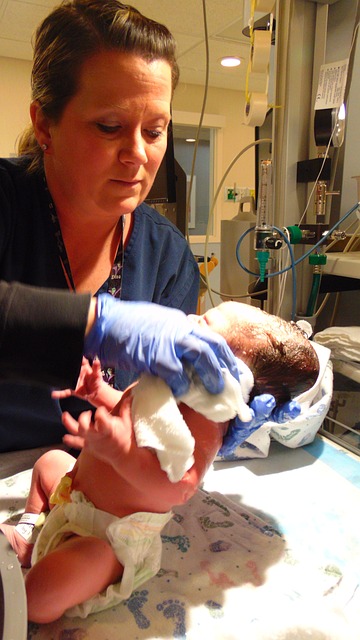Book Appointment Now

The Impact of Vaccination Programs on Pediatric Health Outcomes
Vaccination programs have played a critical role in improving pediatric health outcomes worldwide. Through the prevention of serious diseases, vaccinations have significantly reduced child mortality and morbidity. Pediatric nurses are at the forefront of these efforts, serving as advocates, educators, and support systems for families navigating the vaccination process. Understanding the impact of vaccination programs on pediatric health outcomes is essential for healthcare professionals, particularly as they work to address vaccine hesitancy and ensure comprehensive immunization coverage.
Get a custom nursing essay about vaccination programs on pediatric health outcomes impact assignment
Order Custom Nursing Essay
The Importance of Vaccination in Pediatric Health
Vaccination is one of the most effective public health interventions for preventing diseases such as measles, polio, diphtheria, and whooping cough. For pediatric populations, vaccines are especially crucial in protecting vulnerable children who are more susceptible to infections due to immature immune systems.
Key Benefits of Vaccination Programs:
- Reduction of Disease Incidence: Widespread vaccination has dramatically reduced the prevalence of many life-threatening diseases, contributing to improved health outcomes for children.
- Herd Immunity: When a significant portion of a population is immunized, it creates herd immunity, reducing the spread of contagious diseases and protecting unvaccinated individuals.
- Prevention of Complications: Vaccination not only prevents the occurrence of diseases but also reduces the risk of severe complications that may arise from infections, such as hearing loss from meningitis or paralysis from polio.
Role of Pediatric Nurses in Vaccination Programs
Pediatric nurses play an essential role in promoting vaccinations and managing immunization schedules. They are often the first point of contact for parents and caregivers, helping to educate families on the benefits and safety of vaccines while addressing concerns.
Key Responsibilities Include:
- Administering Vaccines: Pediatric nurses are responsible for ensuring that children receive vaccines according to the recommended immunization schedule. This involves careful attention to dosage, timing, and monitoring for any potential side effects.
- Educating Families: Nurses provide clear and accurate information about the benefits of vaccines, how they work, and what to expect after immunization. This education is crucial in reducing vaccine hesitancy.
- Building Trust: Pediatric nurses build relationships with families, helping to alleviate fears and concerns. Trust is a key factor in convincing parents to adhere to vaccination schedules.
Managing Parental Concerns About Vaccination
Common Concerns and Misconceptions
Despite overwhelming scientific evidence supporting the safety and efficacy of vaccines, some parents still express concerns or doubts about vaccinating their children. These concerns may stem from misinformation, cultural beliefs, or fear of potential side effects.
Common Misconceptions Include:
- Vaccine Safety: Some parents worry that vaccines cause adverse effects or lead to conditions such as autism, despite numerous studies debunking these claims.
- Overloading the Immune System: Parents may fear that administering multiple vaccines at once could overwhelm their child’s immune system, though research shows that the immune system can handle multiple vaccines without issue.
- Natural Immunity vs. Vaccines: Some believe that allowing children to contract diseases naturally leads to better immunity, but the risks associated with disease complications far outweigh the benefits of natural immunity.
Pediatric Nurses’ Role in Addressing Vaccine Hesitancy
Pediatric nurses are uniquely positioned to address vaccine hesitancy by engaging in open, non-judgmental conversations with parents. This includes understanding their concerns and offering evidence-based responses to alleviate fears.
Strategies for Managing Vaccine Hesitancy:
- Provide Clear Information: Offering scientifically backed data about vaccine safety and efficacy helps to counter misinformation.
- Respect Parental Autonomy: While emphasizing the importance of vaccines, pediatric nurses must respect parents’ concerns and decisions, creating a supportive dialogue.
- Utilize Storytelling: Sharing real-life stories about the consequences of vaccine-preventable diseases can personalize the risks and benefits of vaccination.
Subheading: The Impact of Vaccination Programs on Pediatric Health Outcomes
Pediatric vaccination programs have led to remarkable improvements in public health, virtually eradicating many once-common diseases. The direct impact on pediatric health outcomes includes:
- Lower Child Mortality Rates: Vaccines have significantly decreased child mortality rates by preventing deadly diseases.
- Reduction in Hospitalizations: Vaccinated children are less likely to require hospitalization due to infectious diseases, reducing the strain on healthcare systems and improving overall health.
- Enhanced Quality of Life: Children who are vaccinated are less likely to suffer from long-term health complications caused by vaccine-preventable diseases, resulting in better overall development and well-being.
The Role of Pediatric Nurses in Overcoming Vaccine Misinformation
In recent years, the spread of misinformation about vaccines has led to an increase in vaccine hesitancy, resulting in outbreaks of diseases that were previously under control. Pediatric nurses must take a proactive role in dispelling myths and providing accurate information to families.
Combating Misinformation:
- Promote Science-Based Information: Pediatric nurses should provide families with reputable sources such as the Centers for Disease Control and Prevention (CDC) and the World Health Organization (WHO) to combat false claims.
- Encourage Open Dialogue: Nurses should create an environment where parents feel comfortable asking questions and expressing concerns without fear of judgment.
- Community Outreach: Engaging with communities through educational programs and workshops can help promote the importance of vaccinations and dispel myths at a broader level.
The impact of vaccination programs on pediatric health outcomes is undeniable, with significant reductions in child mortality, hospitalizations, and long-term health complications. Pediatric nurses play a pivotal role in ensuring the success of these programs by promoting vaccinations, educating families, and managing vaccine hesitancy. As trusted healthcare providers, pediatric nurses must continue to advocate for vaccines and work closely with parents to ensure that every child receives the necessary protection against life-threatening diseases.







